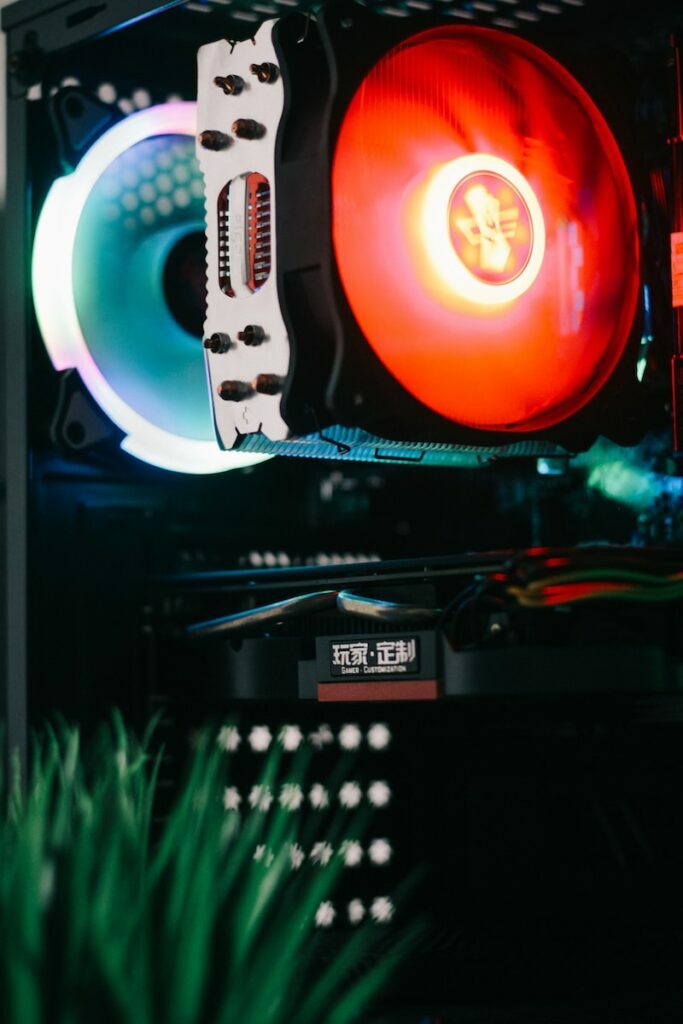
Have you ever wondered how to keep your computer cool while running demanding applications or games? As the performance of modern computer hardware increases, so does the amount of heat generated by these components. To address this issue, two common cooling systems are used – air cooling and liquid cooling. But which one is better? In this article, we will explore the differences between air vs liquid cooling systems in PCs, how they work, their advantages, and when to use each
Air Cooling Systems:
Air cooling systems utilize a heatsink and a fan to dissipate heat from the computer’s components. The heatsink is usually made of metal and has a series of fins that increase its surface area, which allows heat to transfer to the air more effectively. The fan, on the other hand, helps to push air through the heatsink, increasing the cooling efficiency.
Advantages:
Air cooling systems are much easier to install and maintain than liquid cooling systems. They also tend to be less expensive and more readily available. Additionally, they don’t require any special setup or maintenance, and there’s no risk of leaks or spills.
Air cooling systems are best suited for users who don’t overclock their systems and have a limited budget. They are also a good choice for those who want a simple and easy-to-use cooling system that doesn’t require much maintenance.
Liquid Cooling Systems:
Liquid cooling systems utilize water or other coolants to transfer heat away from the computer’s components. A water block is installed on the CPU, GPU, or other components, and a pump moves the coolant through a series of tubes to a radiator, which dissipates heat through the use of fans.
Advantages:
Liquid cooling systems offer better cooling performance than air cooling systems, as water is a more efficient heat conductor than air. They are also more effective at reducing noise levels, as the fans used in liquid cooling systems tend to be larger and slower than those in air cooling systems. Additionally, liquid cooling systems allow for greater flexibility in terms of customization and design.
Liquid cooling systems are best suited for users who frequently overclock their systems and require better cooling performance. They are also a good choice for those who want a more customizable cooling system that can be designed to fit their specific needs. However, liquid cooling systems tend to be more expensive and require more maintenance than air cooling systems, so they are not ideal for users on a limited budget or who are not comfortable performing regular maintenance.
In conclusion, both air and liquid cooling systems have their advantages and disadvantages, and the best cooling system for your PC depends on your specific needs and budget.
Air cooling systems are easy to install, low-cost, and require minimal maintenance, making them an excellent choice for users who don’t overclock their systems or have a limited budget.
On the other hand, liquid cooling systems offer better cooling performance, low noise levels, and greater customization options, making them ideal for users who frequently overclock their systems and require better cooling performance. However, they tend to be more expensive and require more maintenance than air cooling systems.










































